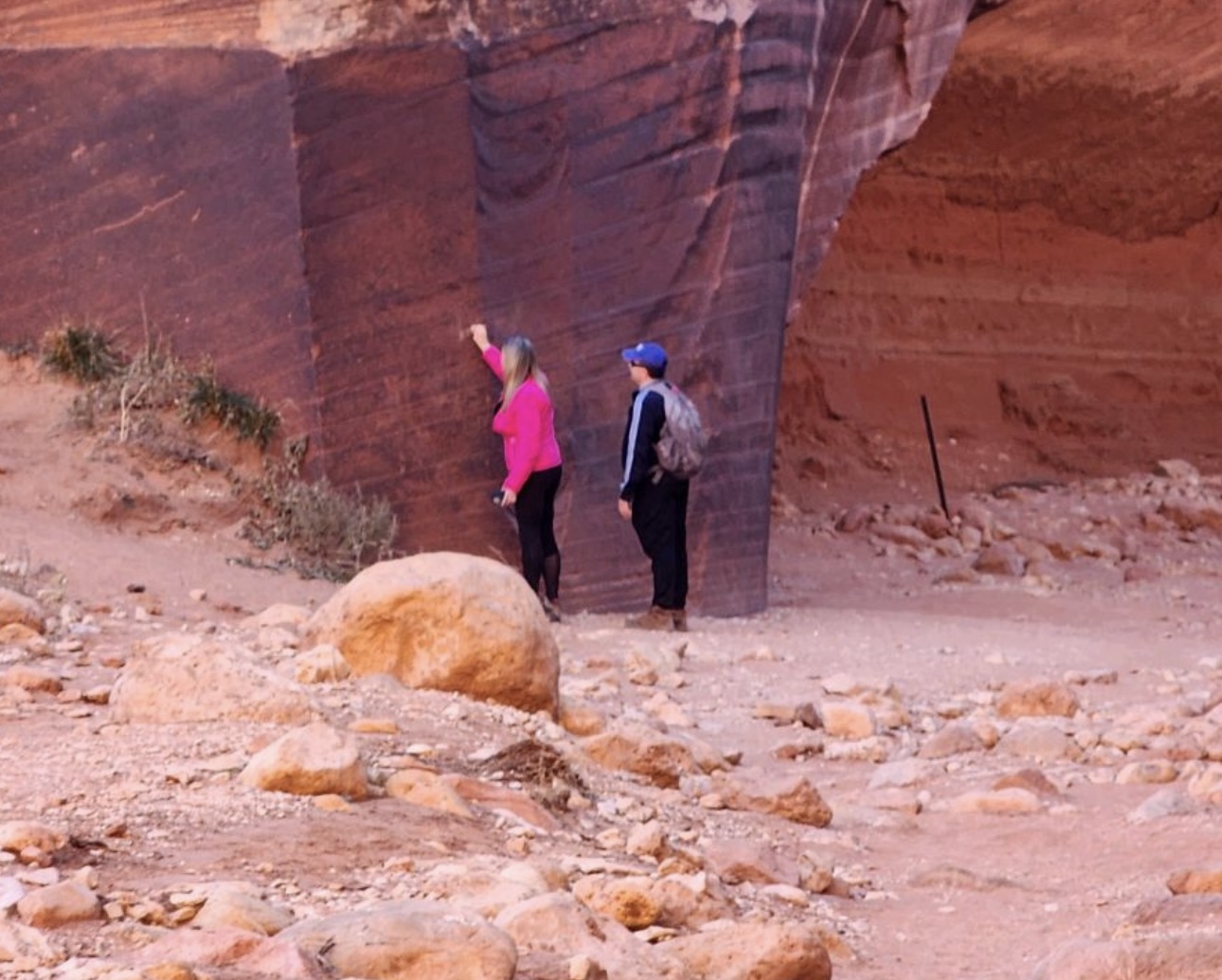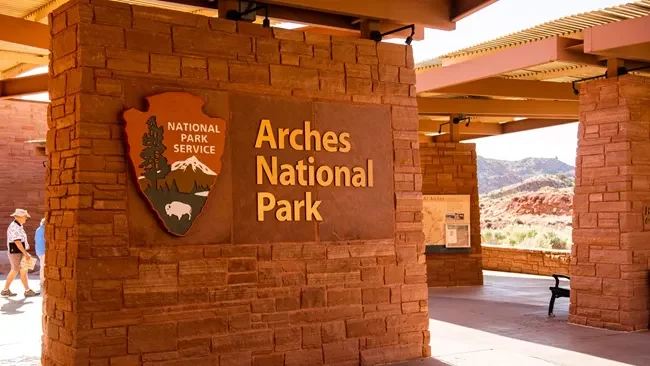Some information may be outdated.
At its last meeting, the Grand County Commission held a public hearing on a proposed glamping development called Entrada Moab near the junction of Highway 191 and State Road 313. The plan includes 16 tent sites, an activity center, a spa and swimming pools, a panoramic deck, and trails. The developer, a native of Fruita, Colorado, said he plans to set aside most of the 544-acre parcel in a conservation easement and include six employee housing units in the development, but current ordinances prevent those from being legally binding aspects of a development agreement.
At the Feb. 15 meeting, commissioners considered whether to approve or deny the request that the county’s overnight accommodations overlay be applied to the property to allow the glampground. Some commissioners said they’re unwilling to approve any new overnight accommodation units until the housing stock for locals has been increased. Over the past several years, community members and local leaders have grappled with a crisis in housing availability at the same time that the tourism industry continues to grow. In 2019 policy-makers determined a baseline ratio of overnight accommodation units to residential units—1.4 rentals to one primary residential unit—and said they would aim to maintain that ratio.
Currently, the ratio is 1.7 overnight units to each primary residential unit.
“We’re going to be going backward if we keep permitting overnight accommodations—we’re fighting ourselves in that sense,” said Commissioner Trisha Hedin.
“I don’t question the ethics of the developer,” said Commission Chair Gabe Woytek, but said he was not comfortable moving the overnight to primary residence unit ratio in the wrong direction. “It’s so challenging. I see it every single day, the crisis that we’re in,” he said. “I’m still a hard ‘no’ on approving overnight accommodations until there’s more progress from a housing ratio aspect.”
On the other hand, some commissioners pointed out that denying the Entrada Moab application could leave the property open to other, possibly less desirable developments. The parcel’s current range and grazing zoning allows for low density residential and agricultural development. Another developer might pursue those uses without the promise of maintaining a large part of the parcel—which lies along recreational access and scenic routes—as open, undeveloped space. Projects already allowed under the current zoning would not be subject to the commission’s approval.
“More overnight accommodations is bad, I agree,” said Commissioner Kevin Walker. “But that’s not the only bad thing in the world, and it’s not the only bad thing that can happen.” Walker also noted that the state legislature has its eye on Grand County, and may be inclined to step in if it sees Grand County as stonewalling all new development.
Commissioner Mary McGann spoke in favor of the development. “This offers us an opportunity to protect a great deal of land,” she said. “And that doesn’t come around very often, especially in Utah.”
County Attorney Christina Sloan explained that with recent changes in state statute, development agreements must go through a public hearing process. She recommended that the commission wait on approving the application until it can update its code to make the process more clear.
“We need to update our code to integrate how to do these development agreements,” she said. By going through the application process again after updating code, it could be possible to include the conservation easement and employee housing parts of the development plan in a binding agreement.
The commission voted 5-1 to deny the application, with the understanding that they would reconsider it if it came before them again with guarantees of the conservation easement and employee housing aspects of the plan. McGann opposed the motion and Commissioner Evan Clapper was temporarily absent from the meeting.
UTV event moratorium
In October of 2020, the Grand County Commission imposed an indefinite moratorium on new licenses for new ATV/UTV-based businesses and on permitting ATV/UTV-based special events.
Each April, a Fallen Peace Officers Trail ride is held on the four-wheel-drive Fallen Peace Officers Trail north of Moab. The trail was unveiled by the Utah Peace Officers Association in 2013.
Angie Book, director of the Old Spanish Trail Arena, presented a request that the Special Event Advisory Committee be given final authority on approving the special event permit for the 2022 ride, rather than bringing it before the commission. Sloan reminded commissioners that the ATV/UTV event moratorium is still in effect. Commissioners suggested that the event be allowed to take place with the stipulation that only full-sized vehicles can be used, and that ATVs and UTVs would not be allowed.
Woytek said he was uncomfortable imposing such a condition on the event when it’s scheduled to happen so soon, and said it was an opportunity to build goodwill with the ATV/UTV community to allow an exception to the moratorium for the Fallen Peace Officer Ride.
The commision voted 5-1 to allow the Special Event Advisory Committee final authority on the Fallen Peace Officers Trail Ride, with the condition that only full-sized vehicles may be used. Woytek voted in opposition and Clapper was temporarily absent from the meeting.
Water consortium
Grand County is taking part in a regional water consortium being formed to develop a water utility resource management plan with the goal of ensuring resilient management of area water resources for the next 100 years. Working group members are local water providers: the San Juan County Special Service District, the City of Moab and Grand Water and Sewer Service Agency.
Dana Van Horn, manager of GWSSA, said she’s excited that after water service entities sometimes not getting along in the past, “we finally have a group of people that want to collaborate and try to maximize the resources for all of us.”
The group will contract with engineers to conduct a study on existing and potential water sources and water needs, as well as the potential impacts of drought and climate change.
The Grand County Commission meets on the first and third Tuesday of every month at 4 p.m. Meetings are streamed online at the Grand County Youtube channel. Schedules, agendas and opportunities for public comment can be found at www.grandcountyutah.net. Residents can email commission@grandcountyutah.net to automatically reach each County Commission member, the commission administrator, the associate commission administrator, and the county attorney.
Appreciate the coverage? Help keep local news alive.
Chip in to support the Moab Sun News.




